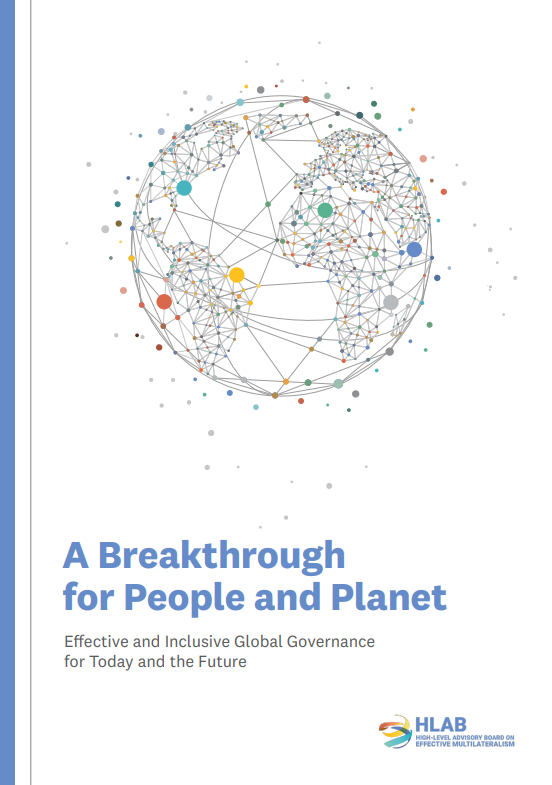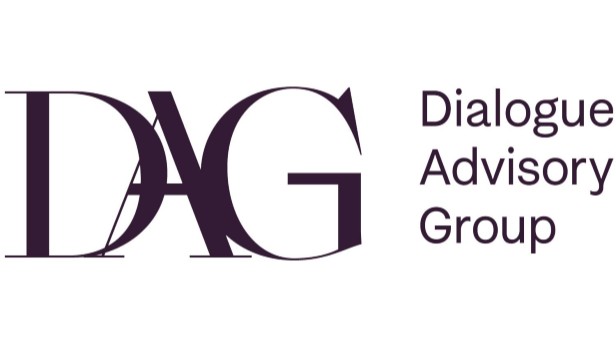The report recommends enhancing global governance to address current and future challenges. It is based on ‘Our Common Agenda,’ a pivotal document by the United Nations Secretary-General, urging robust governance on global matters like the planetary crisis, digital transition, sustainable financing, peace, prevention, and anticipatory action. HLAB proposes six essential changes:
- Rebuilding trust in multilateralism through increased accountability and inclusion.
- Aligning with nature while ensuring universal access to clean energy.
- Promoting sustainable financing for the benefit of everyone.
- Advocating for an equitable digital transition that utilizes data effectively and safeguards against digital harm.
- Supporting fair collective security arrangements and the management of transnational risk governance.
- Proposing principles for effective multilateralism, such as being people-centric, representative, transparent, equitable, networked, well-funded, mission-oriented, flexible, accountable, and forward-thinking.
In addition, the report suggests holding a Future Summit in 2024, offering United Nations Member States an opportunity to transform collective challenges into progress for people and the planet.
Shift One: Rebuild Trust in Multilateralism
It underscores the importance of rebuilding multilateral trust for a sustainable future. Collaboration between member states, organizations, civil society groups, and activists is necessary to tackle global challenges jointly. The UN General Assembly and the Secretary-General play pivotal roles in promoting international peace and security, using their powers under Articles 14 and 99.
Initiatives include Finance for Peace, aligning financial systems with the Sustainable Development Goals, and fostering sustainable development and peace. It also discusses the Common Framework’s use for effective debt restructuring, emphasizing transparency and engagement. The document advocates for shared principles towards an open, free, and secure digital future, addressing connectivity, fragmentation, data governance, and online human rights issues. The Freedom Online Coalition’s efforts are recognized as vital in establishing online trust and safeguarding human rights.
Shift Two: Planet and People
It emphasizes achieving equilibrium with nature and providing widespread access to clean energy. It advocates for collective action to resolve environmental problems and advance sustainable development. Transitioning to clean energy is crucial in combating climate change and ensuring everyone’s access to clean energy. The text stresses the importance of preserving harmony with nature, including conserving biodiversity. Sustainable farming, responsible land use, and ecosystem conservation are critical aspects of this balance.
Moreover, environmental considerations should be incorporated into economic and development strategies. The shift acknowledges the significant role of technology and innovation in meeting environmental sustainability objectives. International cooperation and collaboration are indispensable in addressing global environmental challenges and fostering sustainable development.
Shift Three: Global Finance
It focuses on promoting sustainable finance beneficial to all. It underlines the importance of financial systems that foster sustainable development and address global issues. A key proposal is the creation of a Global Commission on Just and Sustainable Digitalization to oversee digital governance and engage diverse stakeholders, including civil society, the private sector, academia, and standards bodies.
Sustainable finance is essential for achieving the Sustainable Development Goals and promoting economic stability. The report calls for a unification of data governance principles through a Global Data Compact and supports the creation of a data impact hub to respond to global crises quickly. It also underscores the need to improve judicial capabilities to deal with digital threats and risks to peace and security.
It suggests inclusive and accountable multilateralism as a crucial method to enhance the legitimacy and efficiency of global governance systems. Lastly, the report advocates incorporating sustainable finance principles into economic and development policies, emphasizing their role in shaping a more sustainable and inclusive future.
Shift Four: Digital and Data Governance
It stresses the necessity of a just digital transition, data protection, and maximizing data value. It emphasizes the need for robust digital and data governance to navigate the challenges and opportunities of the digital era. The document proposes expanding the definition of threats to peace and security to include digital harm. It also advocates for strengthening judicial competence to address these threats. An essential aspect of this transition is ensuring equitable access to digital technologies, enabling everyone to reap the benefits.
It highlights the role of a global data compact in defining principles for data governance and the establishment of a data impact hub for rapid crisis response. It underscores the importance of including diverse stakeholders, such as civil society, the private sector, academia, and standards bodies, in shaping digital governance. The need for protection against digital harms, such as cybersecurity threats and privacy violations, is also emphasized. Finally, the document underscores the importance of utilizing data for sustainable development and economic growth.
Shift Five: Peace and Prevention
It emphasizes promoting fair and effective collective security measures, prioritizing peace and prevention for global stability. In the digital era, this shift expands the concept of threats to peace and security to include digital harms, highlighting the need to confront cybersecurity threats and safeguard against digital vulnerabilities.
It underscores the need to strengthen judicial capacities to effectively deal with these digital threats. A fair digital transition, which protects against digital harms and promotes peace, is crucial. This shift aligns with the United Nations Secretary-General’s vision for global cooperation and supports the Sustainable Development Goals. In conclusion, Shift Five advocates a comprehensive approach to peace and prevention, including digital and data governance in security frameworks. This ensures a complete response to the complex challenges of the interconnected world.
Shift Six: Anticipatory Action
It underlines the importance of strengthening governance structures to address current and future transnational risks effectively. It promotes proactive and anticipatory actions to navigate global challenges and advocates for early detection and response mechanisms. The document emphasizes the need for improved coordination among various stakeholders, which could lead to earlier action and more efficient risk management. It also highlights the importance of incorporating anticipatory action into existing governance frameworks to address transnational threats comprehensively.
Key elements of Shift Six include capacity-building and knowledge-sharing, both crucial in preparing for transnational risks. Technology and data can greatly enhance early warning systems and risk assessment. To sum up, the shift underscores the need for inclusive and participatory approaches in anticipatory action, ensuring fairness in outcomes and fostering a sense of shared responsibility in managing global risks.
A Breakthrough for People and Planet




